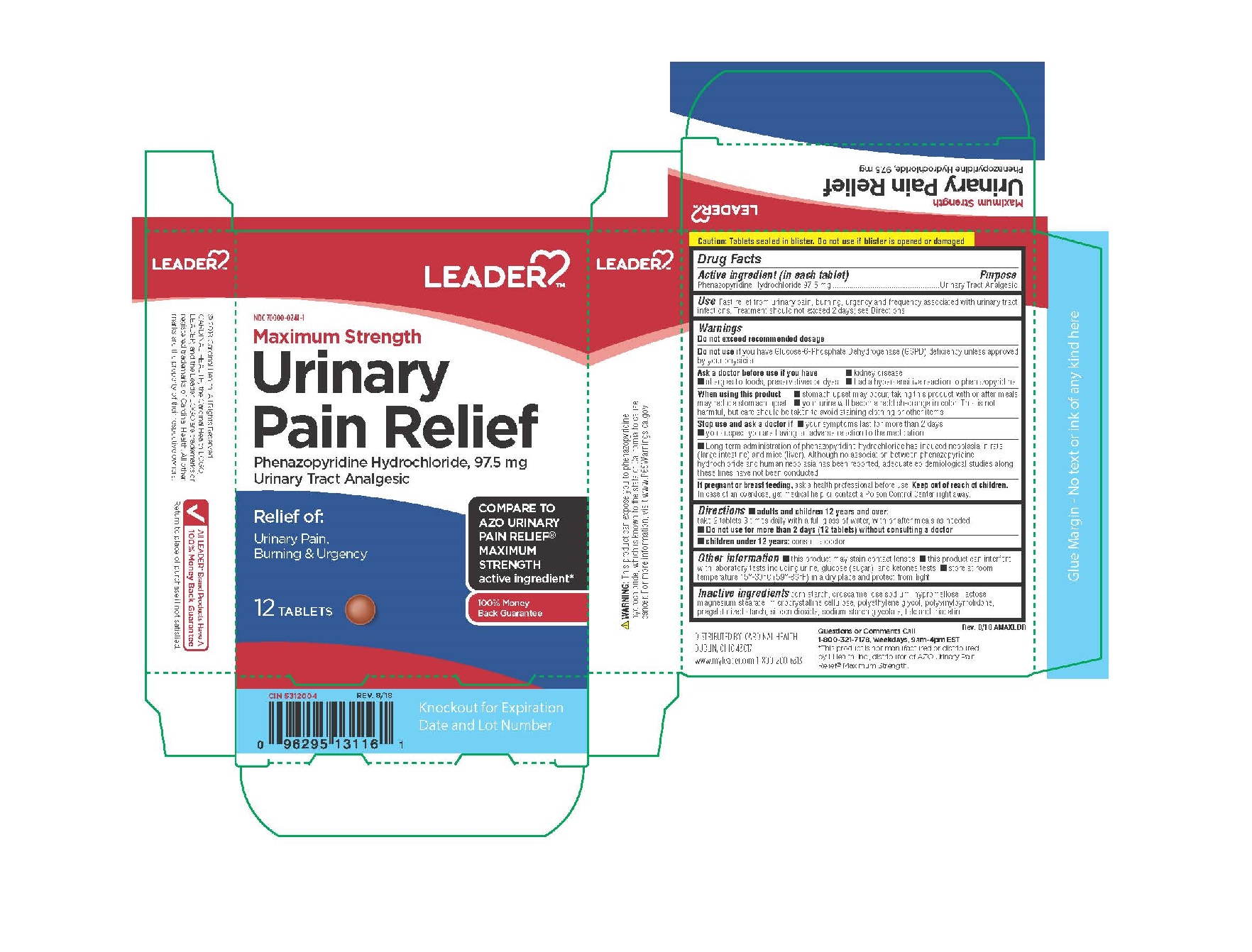Leader Maximum Strenght Urinary Pain Relief | Phenazopyridine Hydrochloride Tablet while Breastfeeding

What is Leader Maximum Strenght Urinary Pain Relief | Phenazopyridine Hydrochloride Tablet ?
Brief: URINARY ANALGESIC
Can I use Leader Maximum Strenght Urinary Pain Relief | Phenazopyridine Hydrochloride Tablet while breastfeeding?

Leader Maximum Strenght Urinary Pain Relief | Phenazopyridine Hydrochloride Tablet Breastfeeding Analsys
Phenazopyridine hydrochloride while Breastfeeding
Low RiskCAS Number: 94-78-0
Colorante azoico con efecto analgésico en la mucosa del tracto urinario. Uno de sus metabolitos es el paracetamol. Puede teñir las secreciones corporales de color anaranjado. Riesgo de metahemoglobinemia. A fecha de última actualización no encontramos datos publicados sobre su excreción en leche materna. Producto de farmacocinética poco estudiada y de eficacia limitada. Hasta conocer más datos sobre este fármaco, son preferibles alternativas conocidas más seguras, en especial en el periodo neonatal y en caso de prematuridad o déficit de glucosa-6PD.
Leader Maximum Strenght Urinary Pain Relief | Phenazopyridine Hydrochloride Tablet Breastfeeding Analsys - 2
Phenazopyridine hydrochloride while Breastfeeding
CAS Number: 94-78-0
The safety of phenazopyridine is not established in infants or during breastfeeding. Because it can cause methemoglobinemia, sulfhemoglobinemia, and hemolytic anemia, it should be avoided while breastfeeding, especially with an infant under 1 month of age or with glucose-6-phosphate dehydrogenase (G6PD) deficiency.
I am nursing mother and I have already used Leader Maximum Strenght Urinary Pain Relief | Phenazopyridine Hydrochloride Tablet, what should I do?
During whole lactation period you shall first discuss with your doctor and then together you shall decide whether you shall take that drug or not however if you have already taken Leader Maximum Strenght Urinary Pain Relief | Phenazopyridine Hydrochloride Tablet then you shall inform your doctor, But you should not be worried too much as Leader Maximum Strenght Urinary Pain Relief | Phenazopyridine Hydrochloride Tablet comes in category of low risk drug.
My doctor has prescribed me Leader Maximum Strenght Urinary Pain Relief | Phenazopyridine Hydrochloride Tablet, what should I do?
Though Leader Maximum Strenght Urinary Pain Relief | Phenazopyridine Hydrochloride Tablet dose not comes in category of safe drugs rather it comes in category of low risk but if your doctor is aware that you are breastfeeding your baby and has still recommended it then its advantages must be outweighing the risks.
If I am using Leader Maximum Strenght Urinary Pain Relief | Phenazopyridine Hydrochloride Tablet, will my baby need extra monitoring?
Not much
Who can I talk to if I have questions about usage of Leader Maximum Strenght Urinary Pain Relief | Phenazopyridine Hydrochloride Tablet in breastfeeding?
US
National Womens Health and Breastfeeding Helpline: 800-994-9662 (TDD 888-220-5446) 9 a.m. and 6 p.m. ET, Monday through Friday
UK
National Breastfeeding Helpline: 0300-100-0212 9.30am to 9.30pm, daily
Association of Breastfeeding Mothers: 0300-330-5453
La Leche League: 0345-120-2918
The Breastfeeding Network supporter line in Bengali and Sylheti: 0300-456-2421
National Childbirth Trust (NCT): 0300-330-0700
Australia
National Breastfeeding Helpline: 1800-686-268 24 hours a day, 7 days a week
Canada
Telehealth Ontario for breastfeeding: 1-866-797-0000 24 hours a day, 7 days a week
